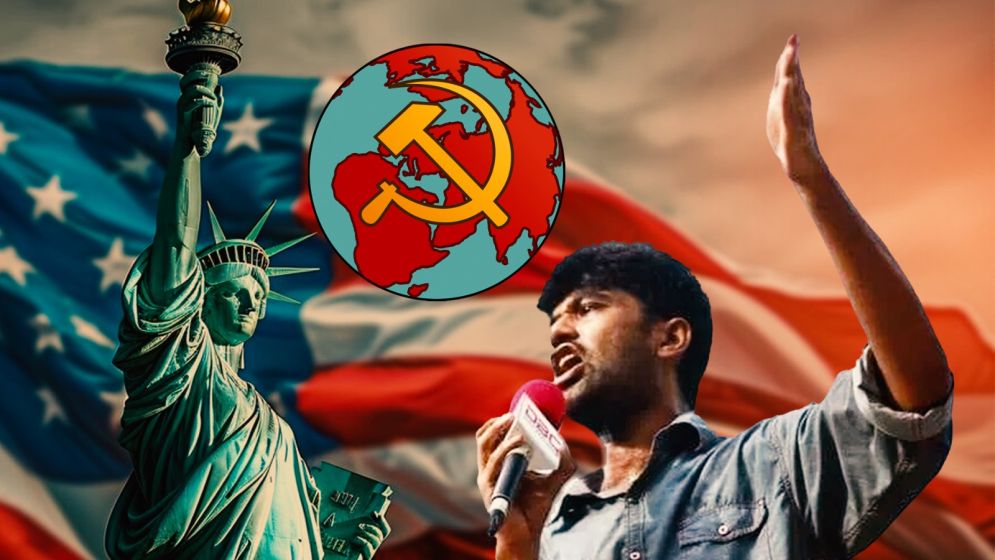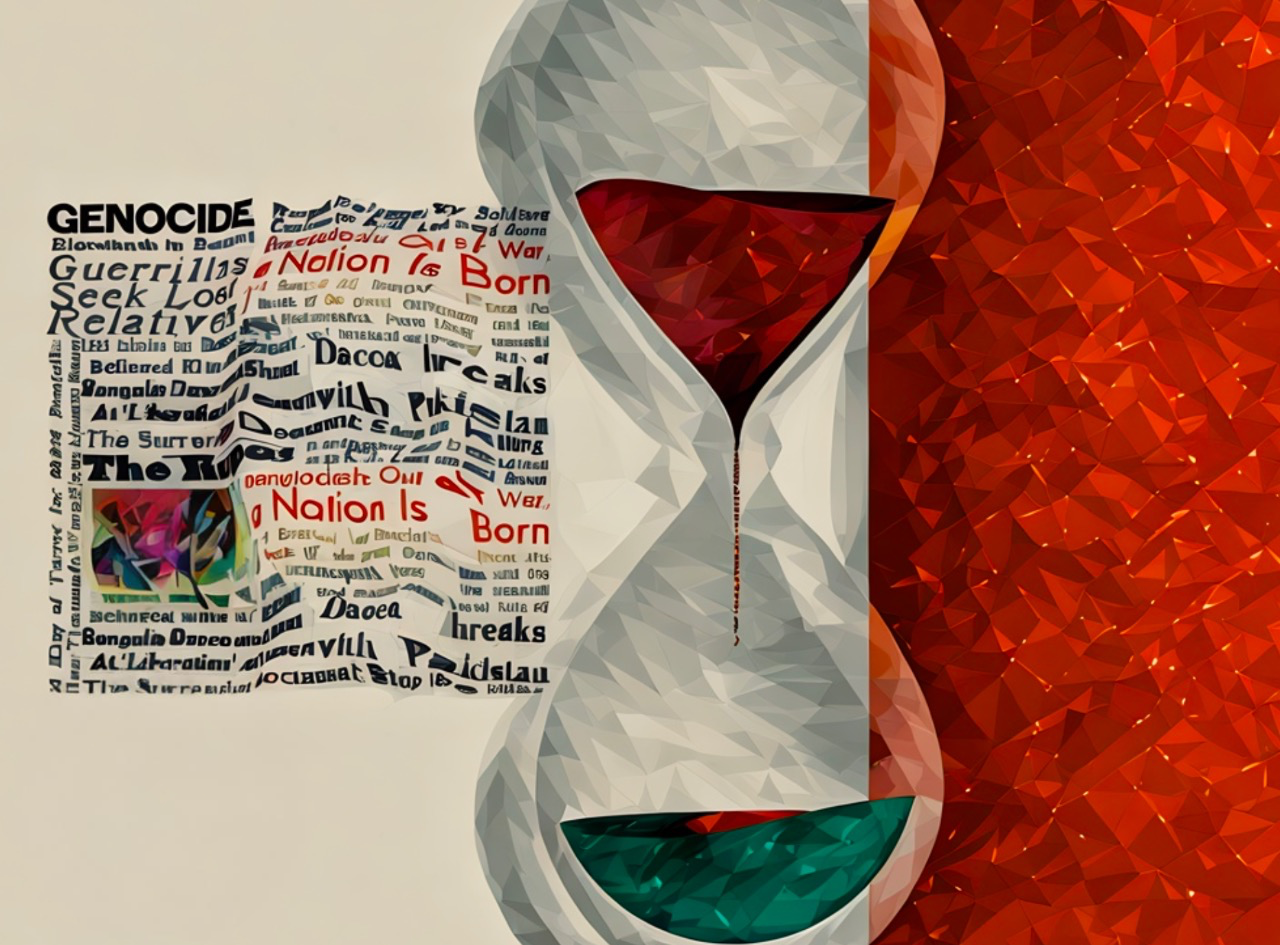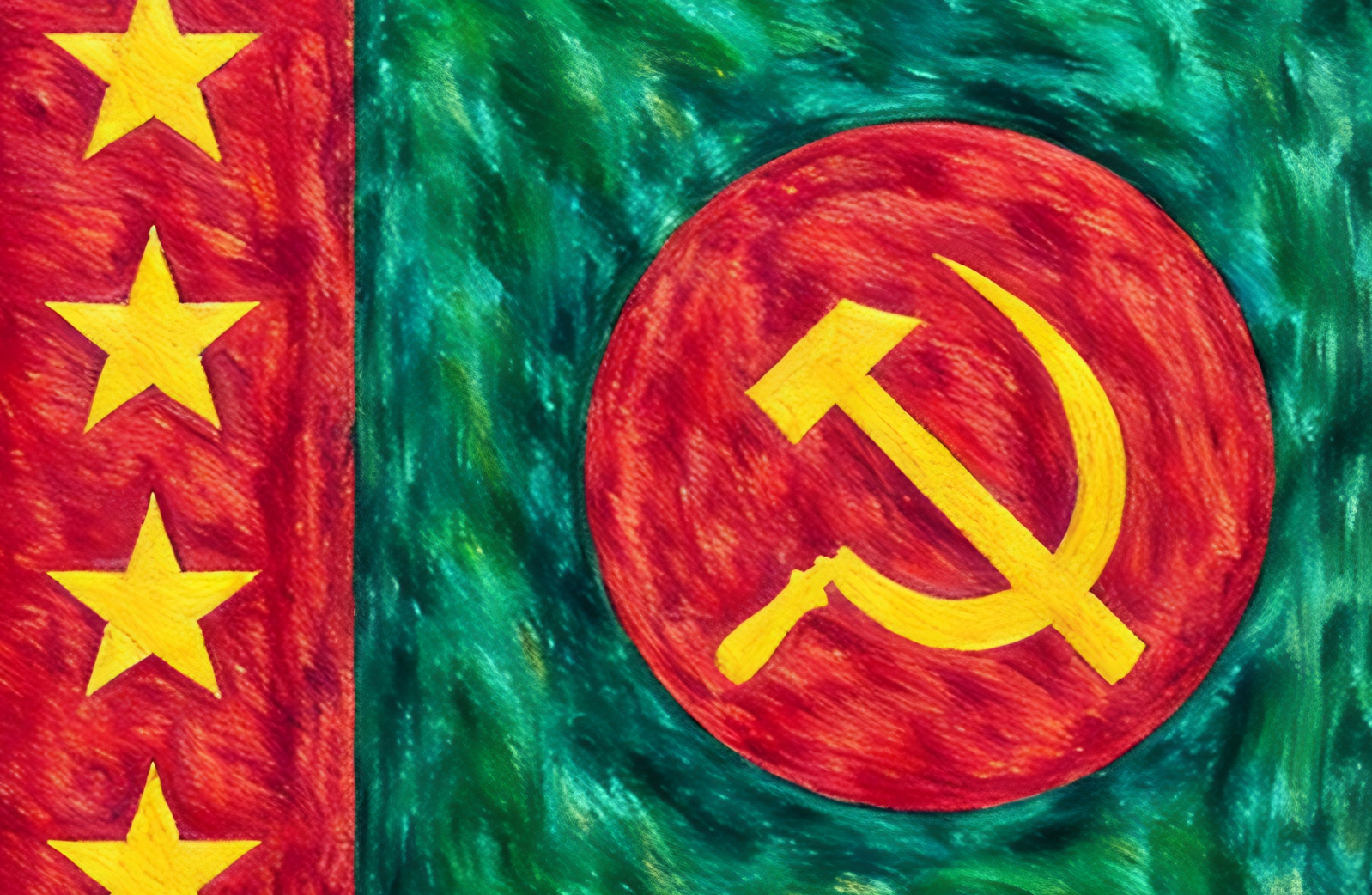Meghmallar Basu’s Red Terror outcry: A test for the West’s influence in Bangladesh

Meghmallar Basu, the president of the Dhaka University chapter of the Bangladesh Students’ Union—arguably the country's most influential communist organization—recently sparked a wave of outrage by calling for the introduction of the "Red Terror" to Bangladesh.
The remarks, made on January 17, 2025, ignited a swift and vociferous backlash from the public.
This wasn’t the first time Meghmallar stirred controversy. Earlier in 2024, he had openly advocated for militant attacks on U.S. embassies worldwide, framing the move as part of a broader campaign against imperialism.
His comments were eerily reminiscent of his celebration in 2020 of a 1972 militant attack by his organization on a U.S.-run institution, raising questions about the ideology driving his rhetoric.
To many, this might seem jarring, given the widely held belief that Islamists and communists are ideological foes—particularly in Bangladesh, where Islamists are often positioned as opponents of the West, while communists, under the guise of secularism, have traditionally been seen as allies.
Yet, Meghmallar’s remarks are perhaps less surprising than they first appear, and can be understood through two key historical and ideological lenses.
First, communism in the Bengal region has long struggled with its relationship to Islam. Early communist movements were overwhelmingly Hindu in composition, and their rhetoric, rituals, and organizational structures frequently reflected Hindu concerns.
This, in turn, fostered a sense of alienation among Bengal’s Muslim population, who have historically faced systematic marginalization.
The communist party’s indifference—or outright hostility—towards Muslim identity positioned it against the interests of Bengal’s Muslim majority at critical junctures in history.
In many ways, communism in Bengal has been more about co-opting Muslim political support without genuine Muslim empowerment.
This is particularly relevant considering the socio-economic realities facing Bengal’s Muslim population.
Despite being the majority in the region, they have long remained politically and economically disadvantaged, largely due to exploitation by Hindu landlords and British colonial administrators.
Thus, the appeal of Muslim empowerment in this context, particularly in the face of historical oppression, should not come as a surprise.
For many in the region, communism, with its anti-imperialist rhetoric, can appear to align with the quest for social justice and empowerment, even if it comes from a secular framework.

Broader geo-political context
Secondly, the broader trajectory of secular politics in the Muslim world offers further context.
While exceptions like Turkey and Iran exist, secular nationalism in many Muslim-majority countries has traditionally been aligned with communist and Soviet ideals, largely as a reaction to Western imperialism.
Secular Arab nationalism, for example, was staunchly anti-Western and pro-Soviet during much of the 20th century, a trend that was mirrored in Bengali nationalism, which also found common cause with Soviet anti-imperialism.
In light of this, Meghmallar’s rhetoric may reflect a broader pattern within Bengali and South Asian leftist politics—one that seeks to align itself with anti-imperialist, anti-Western forces, even if it means forging alliances that, on the surface, may appear contradictory.
For many, these dynamics shed new light on the complex and often paradoxical relationship between communism, Islamism, and the West in the region.
During the Cold War, the West and Islamists formed an unlikely alliance to combat the "Godless" threat of communism, a partnership that ultimately helped precipitate the collapse of the Soviet Empire.
As the Cold War ended and the Soviet Union fell, communists realized the shifting tides of power lay with the West.
In the aftermath, they joined forces with the Western bloc, particularly during the War on Terror, where they found common ground with the U.S. in the battle against Islamism.
In a sense, Islamist terrorism helped catalyze this new, paradoxical partnership between the West and Muslim communists.
Perhaps it’s not entirely surprising then that Noam Chomsky, a revered figure on the global left, opposed NATO intervention in the Balkans, even as the intervention helped protect Balkan Muslims.
Chomsky’s condemnation of Western support for what he calls "radical Islam" mirrors the rhetoric of alt-right Islamophobes, reflecting a troubling convergence in the language of ideological opponents.
Similarly, the Indian media and intellectual circles, which have long had close ties with Bengal’s communist factions, continue to blame the U.S. for its support of "Islamists" in Bangladesh—particularly during the July Revolution that toppled Prime Minister Hasina.
The term "Islamist" itself, however, is deeply problematic. Self-identified secularists often use it to delegitimize and dehumanize their political opponents.
This is why individuals like Muhammad Yunus, a lifelong critic of Islamist politics and a Nobel laureate, are branded as "Islamists" by India’s political leaders and Hasina’s supporters.
In essence, when viewed through the lens of the Bengal region, the so-called "Islamists" are not necessarily enemies of the West, and the communists posing as secularists may not be its greatest allies—at least not by default.

Alliance with West to negate Indian
influence
In Bangladesh, those categorized as right-wing or Islamist are often driven by a deep-seated fear of Indian dominance, a legacy of colonial-like control under Hasina’s government.
To counterbalance India’s regional hegemony, they have historically sought alliances with the West.
Despite the prevailing sentiment that the West has been largely indifferent to these overtures, calls for stronger ties with the West have never been more vocal.
For example, in a recent Foreign Policy article, Bangladeshi journalist Ahmede Hussain argued in favor of hosting a U.S. military base on Bangladeshi soil, reflecting a growing desire for deeper Western engagement.
However, this pro-West sentiment in Bangladesh may not endure for long if the influential Indian lobby in Western capitals, combined with President Trump's inward-looking foreign policy, succeeds in leaving the country isolated from its traditional allies.
In that case, Bangladesh may find itself forced into a strategic partnership with China, a shift with significant geopolitical ramifications.
The risks of neglecting Bangladesh’s overtures for closer ties with the West are clear.
If moderate voices in Bangladesh fail to bridge the gap between the West and Bengal’s Muslim community, it will only embolden the militant Islamist narrative—that the West will never extend a hand of friendship to Muslims, no matter the circumstances.
If Western foreign policies are free from Islamophobia—something that should be the goal—there’s a real opportunity to flip the script on the "clash of civilizations" narrative, with Bangladesh as a potential model of reconciliation and cooperation.
In Bosnia, the song "Thank You USA" is a testament to the positive impact of American support. There’s no reason why such a sentiment couldn’t take root in Bangladesh as well.
The ball is now in the West’s court.
The decision to either engage with Bangladesh’s popular forces or continue empowering the advocates of Red Terror, who call for attacks on U.S. embassies, will not only shape the future of Bangladesh but could also influence the broader trajectory of the Muslim world.
—--
Md Ashraf Aziz Ishrak Fahim has a first degree in International Relations and Global Affairs from Mahidol University, Thailand, and an MA in Social and Political Thought from the University of Leeds, UK. He is currently a graduate student of Contemporary Islamic Studies at Hamad Bin Khalifa University in Qatar. He can be reached at mdfa48907@hbku.edu.qa

